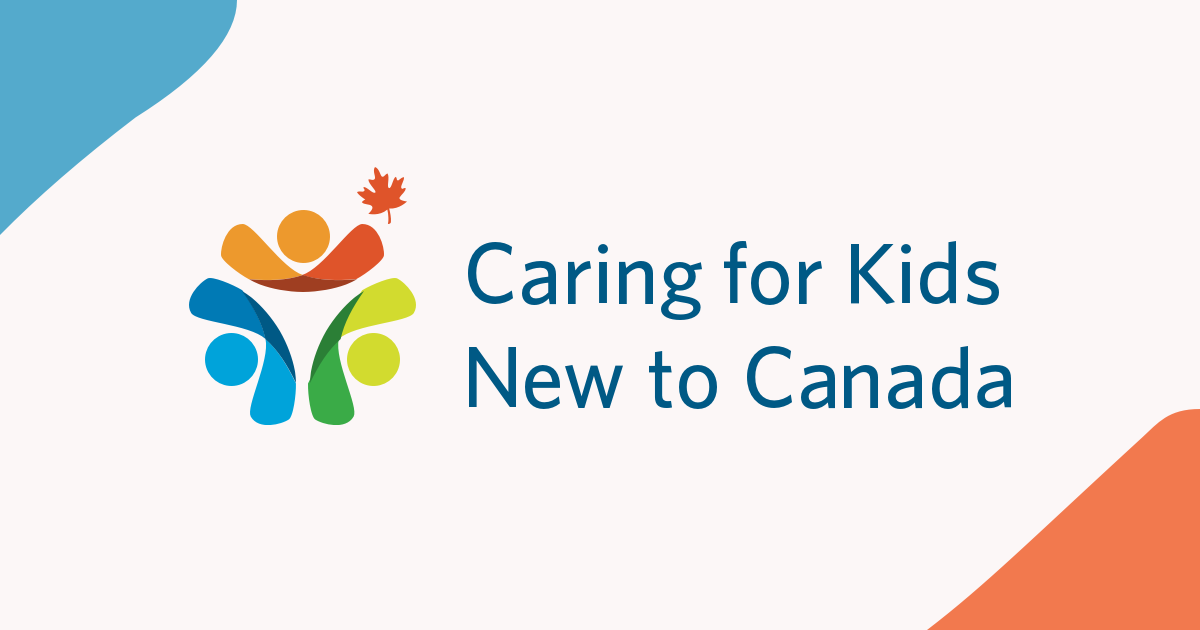How To Secure Affordable Health Insurance As A Newcomer In Canada?
If you are a newcomer in Canada, navigating the healthcare system might seem overwhelming, especially when it comes to securing affordable health insurance. Finding the right coverage that fits your needs and budget is essential to ensure peace of mind and access to quality healthcare. In this article, we will guide you through the process of obtaining affordable health insurance as a newcomer, providing you with valuable tips and resources to make the process easier and more manageable.
Understanding the Canadian Healthcare System
Introduction to the Canadian healthcare system
Welcome to Canada, where the healthcare system is designed to ensure that every citizen and permanent resident has access to medical services and treatments when they need them. The Canadian healthcare system is often hailed as one of the best in the world, providing quality care to its residents. However, navigating the system as a newcomer may seem daunting at first. In this article, we will guide you through the various aspects of the Canadian healthcare system, from coverage provided by the government to the importance of additional health insurance.
Coverage provided by the government
One of the key features of the Canadian healthcare system is the coverage provided by the government. In Canada, healthcare is funded primarily through taxes, which allows for universal coverage. The government provides basic health insurance to all eligible residents, ensuring that necessary medical services are covered. This coverage includes visits to doctors, specialists, hospital stays, emergency care, and essential diagnostic tests. However, it’s important to note that while basic healthcare is covered, not all services, such as prescription drugs, are included.
Importance of additional health insurance
While the government provides essential coverage, it is highly recommended to consider obtaining additional health insurance to supplement your healthcare needs. Additional health insurance can help cover the costs of prescription drugs, dental care, vision care, and other services that may not be included in the basic government coverage. It provides an extra layer of protection and peace of mind, ensuring that you have access to a comprehensive range of healthcare services without facing significant out-of-pocket expenses. Moreover, having additional health insurance can also give you the flexibility to choose the healthcare providers and specialists that best suit your needs.
Eligibility and Enrollment
Determining your eligibility for government health insurance
Before enrolling in the government health insurance program, it’s essential to determine your eligibility. Eligibility for government health insurance in Canada is based on your residency status. As a newcomer, you may be eligible for coverage if you have obtained permanent residency or if you have been granted refugee status. Additionally, some provinces may offer temporary coverage for newcomers while they are waiting for their permanent residency documents. It’s important to check the specific eligibility criteria of the province or territory in which you reside.
Enrolling in government health insurance
Once you have determined your eligibility for government health insurance, the next step is to enroll in the program. Each province and territory in Canada has its own health insurance program, so the enrollment process may vary. Typically, you will need to fill out an application form and provide relevant documents, such as proof of residency and immigration status. It’s essential to carefully follow the instructions provided by your province or territory to ensure a smooth enrollment process. Once enrolled, you will receive a health card that you will need to present whenever you seek medical services.
Obtaining private health insurance
While government health insurance provides basic coverage, it may not cover all your healthcare needs. That’s where private health insurance comes in. Private health insurance can fill the gaps left by government coverage, providing additional benefits and services. To obtain private health insurance, you can research and compare different insurance providers to find a plan that suits your needs and budget. Private health insurance plans can offer a range of benefits, such as coverage for prescription drugs, dental and vision care, and paramedical services. It’s important to carefully review the policies and coverage options before making a decision.

Researching Available Options
Different types of health insurance plans available
When it comes to health insurance plans in Canada, you have several options to choose from. Individual plans are tailored to cover the healthcare needs of a single person. Family plans usually provide coverage for the entire family, including spouses and dependent children. Group plans are often offered through employers or professional associations, providing coverage for a group of individuals. Travel insurance is designed to cover medical expenses while you are outside of Canada. Critical illness insurance provides a lump sum payment in the event of a serious illness diagnosis. Understanding the different types of health insurance plans can help you make an informed decision based on your specific needs.
Comparing costs and coverage
When researching health insurance options, it’s crucial to compare the costs and coverage of different plans. Consider the monthly premiums, deductibles, co-pays, and any additional fees associated with each plan. Evaluate the coverage for prescription drugs, preventive care, hospital stays, and other essential services. Take into account your specific healthcare needs and budgetary constraints. Look for plans that offer comprehensive coverage at a reasonable cost. It may also be helpful to read reviews or seek recommendations from friends, family, or healthcare professionals to gain insights into the reputation and reliability of insurance providers.
Understanding deductibles and premiums
Two important terms to understand when researching health insurance plans are deductibles and premiums. A deductible is the amount you are responsible for paying out-of-pocket before your insurance coverage kicks in. Typically, the higher the deductible, the lower the monthly premium. Premiums, on the other hand, are the monthly payments you make to maintain your health insurance coverage. It’s important to find the right balance between deductibles and premiums that suits your financial situation. Consider your healthcare needs and the likelihood of needing medical services when selecting a plan.
Utilizing Government Assistance Programs
Seeking financial help through government subsidies
If you are facing financial challenges and are unable to afford private health insurance, you may be eligible for government subsidies or financial assistance programs. These programs are designed to provide support to individuals and families with low incomes, helping them access the healthcare services they need. The eligibility criteria and application processes may vary depending on your province or territory. It’s advisable to reach out to the appropriate government agency or visit their website to learn about the specific programs available to you and how to apply.
Understanding the Federal Interim Health Plan
The Federal Interim Health Plan is a temporary healthcare plan provided by the Canadian federal government. It offers coverage for newcomers who have applied for permanent residency, have been issued a work permit, or are awaiting provincial health insurance coverage. The plan helps bridge the gap between arrival in Canada and the receipt of provincial health insurance. While the coverage provided by the Federal Interim Health Plan is limited, it ensures that you have access to essential healthcare services during the waiting period. It’s important to familiarize yourself with the specific eligibility criteria and coverage details of the plan in your province or territory.
Exploring provincial health assistance programs
In addition to the Federal Interim Health Plan, many provinces and territories in Canada offer their own health assistance programs for newcomers. These programs may provide temporary coverage, financial assistance, or other forms of support to help newcomers access healthcare services. The availability, eligibility criteria, and coverage provided by these programs may vary, so it’s advisable to contact your provincial or territorial health authority or visit their website to learn more. Exploring these programs can provide valuable support and peace of mind as you settle into your new life in Canada.

Seeking Employment-Based Health Coverage
Understanding employee benefits in Canada
One of the ways to secure health insurance coverage in Canada is through employment-based benefits. Many employers in Canada offer health insurance as part of their employee benefits package. Employee benefits commonly include health and dental insurance, prescription drug coverage, vision care, and paramedical services. These benefits can significantly reduce your out-of-pocket expenses for healthcare services. It’s important to thoroughly review and understand the employee benefits package offered by potential employers and consider these benefits when making decisions about employment opportunities.
Finding employment that offers health insurance
When job hunting in Canada, it’s worth considering opportunities that provide health insurance coverage. As you search for employment, pay attention to job postings that mention employee benefits or health insurance. Large companies, government agencies, and organizations in certain industries, such as healthcare and finance, are more likely to offer comprehensive health insurance plans. Networking, attending job fairs, and utilizing online job search platforms can help you identify potential employers that provide health insurance benefits. Don’t hesitate to inquire about the benefits package during the interview process to ensure that the position aligns with your healthcare needs.
Negotiating health coverage options with employers
Once you have secured a job offer that includes health insurance benefits, it’s important to understand that negotiation is possible. If the employer’s health insurance plan does not fully meet your needs, you may have the option to negotiate certain aspects of the plan. For example, you could negotiate for additional dental coverage or a higher employer contribution towards the premiums. It’s essential to clearly communicate your healthcare needs and concerns to your potential employer. Approach the negotiation process with a collaborative mindset, aiming to find a mutually beneficial solution that addresses your healthcare requirements.
Understanding Co-pays and Deductibles
What are co-pays and deductibles?
Co-pays and deductibles are key concepts to understand when it comes to health insurance in Canada. A co-pay, also known as a co-payment, is the fixed amount you are required to pay each time you receive a medical service or fill a prescription. This amount is typically a small portion of the total cost and can vary depending on the service or medication. A deductible, on the other hand, is the amount you must pay out-of-pocket before your insurance coverage starts. It’s important to review your insurance plan carefully to understand the co-pays and deductibles associated with different services and treatments.
How co-pays and deductibles affect insurance costs
Co-pays and deductibles can have a significant impact on your overall insurance costs. Plans with lower co-pays and deductibles tend to have higher monthly premiums, while plans with higher co-pays and deductibles usually have lower monthly premiums. When considering insurance plans, think about your healthcare needs and financial situation. If you anticipate frequent medical visits or prescriptions, a plan with lower co-pays and deductibles may provide better value. On the other hand, if you rarely require medical services, a plan with higher co-pays and deductibles might be more cost-effective. It’s essential to strike a balance that ensures access to necessary care without overburdening your finances.
Tips for managing co-pays and deductibles
Managing co-pays and deductibles can help you make the most out of your health insurance coverage. Firstly, consider setting aside funds specifically for co-pays and deductibles so that you are prepared to cover these costs when needed. Additionally, explore options for generic prescription drugs, as they are often more affordable than brand-name medications. It’s also worth discussing treatment options with your healthcare provider to ensure that you are receiving the most cost-effective and appropriate care. Finally, regular preventive care can help detect and prevent medical conditions early, potentially reducing the need for expensive services or treatments in the future.

Considerations for Temporary Residents
Options for temporary residents’ health insurance
If you are in Canada as a temporary resident, such as a visitor, student, or work permit holder, there are specific health insurance options available to you. Visitors to Canada insurance offers coverage for emergency medical services, hospital stays, and other medically necessary treatments during your stay. This type of insurance is essential, as visitors are not eligible for government health insurance. Students studying in Canada can often obtain health insurance through their educational institution or through private insurance providers. Work permit holders can explore private health insurance options or inquire whether their employer offers coverage.
Understanding the Visitors to Canada insurance
Visitors to Canada insurance is designed to provide temporary health insurance coverage for individuals who are not eligible for government health insurance. This insurance is crucial in case of unexpected medical emergencies, accidents, or illnesses that may occur during your stay in Canada. Visitors to Canada insurance typically covers essential medical services, hospital stays, emergency medical evacuation, and repatriation. It’s important to carefully review the policy details and coverage limits to ensure that the insurance plan meets your specific needs and provides sufficient protection during your time in Canada.
Insurance options for study or work permit holders
If you are a student or work permit holder in Canada, it’s crucial to explore health insurance options that cater to your specific situation. Educational institutions in Canada often offer health insurance plans designed for international students. These plans typically provide coverage for basic medical services, prescription drugs, and emergency medical expenses. Work permit holders should consider private health insurance options or inquire whether their employer offers health coverage. It’s crucial to remember that as a temporary resident, you are responsible for obtaining and maintaining suitable health insurance coverage throughout your stay in Canada.
Navigating the Health Insurance Market
Understanding health insurance brokers
Navigating the health insurance market can be overwhelming, but there are resources available to help you make informed decisions. Health insurance brokers are professionals who can assist you in finding the right health insurance plan that suits your needs and budget. Brokers work independently and have knowledge of different insurance providers and policies. They can save you time and effort by researching and comparing multiple options on your behalf. It’s important to note that health insurance brokers are typically compensated by insurance providers, so be sure to clarify any fees or commissions involved before engaging their services.
Researching insurance providers
When choosing health insurance, it’s essential to research and evaluate different insurance providers. Look for insurance companies with a strong reputation, good customer reviews, and a track record of providing reliable customer service. Consider factors such as the provider’s history, financial stability, and their network of healthcare providers. You can gather information by visiting insurance company websites, reading online reviews, and seeking recommendations from friends, family, or healthcare professionals. Remember to take your specific healthcare needs and preferences into account when assessing insurance providers.
Reading and understanding insurance policies
Before finalizing your health insurance plan, take the time to read and understand the insurance policy thoroughly. Insurance policies can be complex and contain specific terms and conditions. Pay close attention to the coverage details, exclusions, co-pays, deductibles, and any limitations that may apply. If you have any questions or uncertainties, don’t hesitate to reach out to the insurance provider for clarification. It’s essential to be fully informed about what your policy covers and what it does not, ensuring that you have the appropriate coverage for your healthcare needs.

Applying for Health Insurance
Gathering required documents
When applying for health insurance, you will need to gather certain documents to support your application. These documents may include proof of identity, proof of residency, immigration documents, and proof of income or employment. Each insurance provider may have slightly different requirements, so carefully review the application instructions and gather the necessary paperwork. Ensure that you have copies of the required documents readily available to expedite the application process.
Completing the application process
Once you have gathered the required documents, you can proceed with the application process. Follow the instructions provided by the insurance provider and fill out the application accurately and thoroughly. Take your time to ensure that all the information provided is correct and up-to-date. Double-check the application form before submitting it to avoid any errors or omissions. Some insurance providers may offer online application options for added convenience. If you encounter any difficulties or have questions during the application process, don’t hesitate to reach out to the insurance provider’s customer service for assistance.
Following up on the status of your application
After submitting your health insurance application, it’s important to follow up on its status. Insurance providers typically provide an estimated timeframe for processing applications. If you have not received any communication or an insurance policy within the specified timeframe, contact the insurance provider to inquire about the status of your application. Keep any documents or receipts related to your application for future reference. It’s a good idea to stay organized and keep a record of important dates, communications, and correspondences with the insurance provider throughout the application process.
Seeking Help from Newcomer Support Organizations
Cooperating with settlement agencies
Settlement agencies can be an invaluable resource for newcomers in Canada. These organizations specialize in assisting newcomers with various aspects of settling into their new lives, including healthcare. Settlement agencies can provide guidance and support in navigating the healthcare system, understanding health insurance options, and connecting you with the appropriate resources. They can also assist with language barriers, cultural considerations, and other challenges commonly faced by newcomers. Cooperating with settlement agencies can help streamline the process of securing health insurance and ensure that you have access to the necessary support as you settle into your new community.
Utilizing newcomer support programs
Newcomer support programs provided by the government or non-profit organizations can offer additional assistance in securing affordable health insurance. These programs are specifically designed to support newcomers and may provide financial assistance, information sessions, workshops, and other resources to help you understand and navigate the healthcare system. It’s worthwhile to explore the available newcomer support programs in your province or territory and take advantage of the valuable information and assistance they provide.
Receiving assistance from insurance counselors
Insurance counselors are professionals who specialize in providing guidance and assistance related to health insurance. These individuals can help you understand the intricacies of health insurance, compare different plans, and provide personalized recommendations based on your specific needs. Insurance counselors typically work independently or with insurance brokers, and their services may be available for a fee. Engaging the services of an insurance counselor can be particularly helpful if you feel overwhelmed by the options available or require individualized advice and support.
In conclusion, understanding and securing affordable health insurance as a newcomer in Canada is essential for ensuring access to quality healthcare services. Familiarizing yourself with the Canadian healthcare system, exploring different health insurance options, and utilizing available resources can help you make informed decisions and protect your health and well-being. Remember to review your specific eligibility for government health insurance, consider the importance of additional health insurance, and explore employment-based options. Researching insurance providers, understanding policy details, and utilizing support from newcomer organizations will further facilitate your journey towards securing affordable health insurance in Canada.







